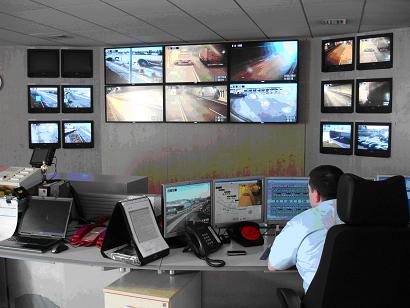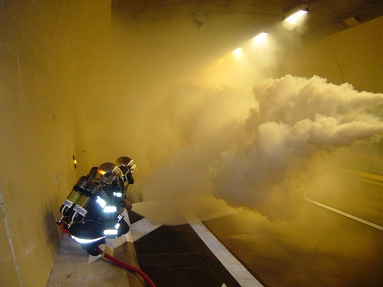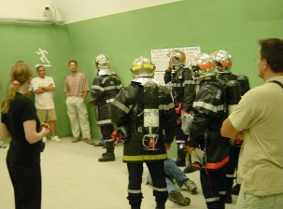
Road Tunnels Manual

Road Tunnels Manual
An adequate knowledge of human factors in the context of road tunnels optimises safety by acting in the direction of the user, the tunnel design and more generally, the organisation (tunnel operating body and emergency services). This chapter provides information regarding the interaction with tunnel staff and emergency teams.

The term "operator" describes the body representing the owner on site and is responsible for operating the tunnel. This key player for tunnel safety works in close relation with the other players concerned (owner, public authorities, emergency services, sub contractors, other operators, users, etc.). Its main task is to manage traffic, civil engineering aspects and tunnel equipment, together with crisis and administrative management related with its missions. It plays a crucial role for optimum implementation of the tunnel safety management system.
Lessons learnt from exercises and real events have shown that the behaviour of all those in charge of operating the tunnel is a decisive factor in ensuring the safety of people during an incident.
One of the key issues regarding this topic is the appropriate reaction of the operating staff responsible for monitoring and controlling tunnels. They are the very first to be involved in road tunnel crisis management and their task is all the more difficult in that they may at any time be required to manage potentially serious events for which the probability they will happen is extremely low. In the event of a serious incident that may require evacuation, they utilise various types of dynamic equipment that will enable them to inform and warn users in real time, whilst encouraging them to adopt the appropriate behaviour. This issue is dealt with in the technical Report 2016R06 entitled “Improving safety in road tunnels through real-time communication with users”. The report describes how to communicate information to users in normal, congested and critical conditions. It then details the various systems that could be activated in order to optimise real-time communication with users.
To react in the appropriate manner, tunnel operators must be able to understand and control sometimes complex situations, meaning they must be very good at stress management. Specific and appropriate training is thus essential. European regulations require the personnel involved in operating tunnels to receive "appropriate initial and continuing training" (European Directive 2004/54/CE - Annex 1 § 3.1 "Operating means").

Rescue teams liable to be called on to intervene in road tunnels obviously need to have the general training required to help people and combat fires in any type of infrastructure. Tunnels are confined spaces in which a crisis or fire can very quickly render rescue operation conditions more complicated. Over and above their technical skills, firemen therefore need to be trained specifically for this type of intervention. This training must develop their behavioural knowhow and enable them to deal appropriately with the complex situations they may be confronted with in a tunnel. This knowhow is particularly crucial for the supervisory staff who must be capable under all circumstances of adapting the operational methods initially envisaged, if needed. In order to fulfill this mission, good coordination with the tunnel staff is critical, requiring meticulous preparation, follow-up and implementation of intervention plans, safety exercises, and training based on feedback of experience.
In the case of cross-border tunnels, attention needs to be drawn to the collaboration required between the countries concerned in order to ensure excellent coordination between the rescue teams in crisis situations.

With respect to the tunnel operator and the rescue teams, the technical Report 2008R03 "Management of the operator-emergency teams interface in road tunnels" discusses the most relevant lessons learnt from the most serious tunnel fires of the last decades. Based on experience and these lessons learnt, the report provides information and recommendations for best practice.
Regarding these players it can be concluded that it is of utmost importance for operator's staff and emergency services: